Anthropology
-
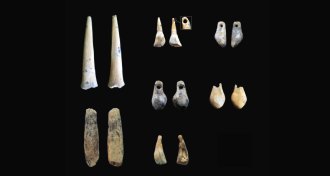 Anthropology
AnthropologyNew dates narrow down when Denisovans and Neandertals crossed paths
Mysterious ancient hominids called Denisovans and their Neandertal cousins periodically occupied the same cave starting around 200,000 years ago.
By Bruce Bower -
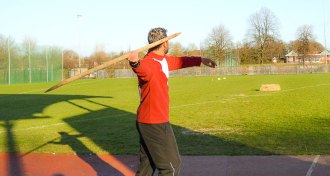 Anthropology
AnthropologyWhy modern javelin throwers hurled Neandertal spears at hay bales
A sporting event with replica weapons suggests that Neandertals’ spears may have been made for throwing, not just stabbing.
By Bruce Bower -
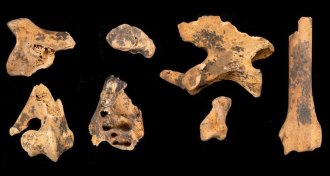 Anthropology
AnthropologyDogs may have helped ancient Middle Easterners hunt small game
Jordanian finds point to pooch-aided hunting of small prey around 11,500 years ago, offering new clues into dog domestication in the Middle East.
By Bruce Bower -
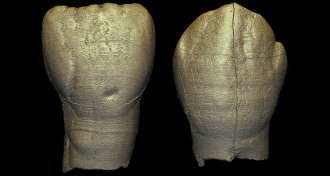 Anthropology
AnthropologyAn ancient child from East Asia grew teeth like a modern human
Choppers from a youngster with an unknown evolutionary background indicate that hominids evolved a humanlike life span in East Asia by 100,000 years ago.
By Bruce Bower -
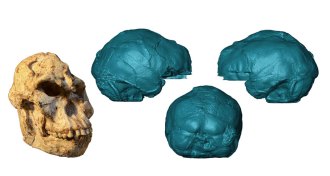 Anthropology
Anthropology‘Little Foot’ skeleton reveals a brain much like a chimp’s
An ancient skeleton dubbed Little Foot points to the piecemeal evolution of various humanlike traits in hominids, two studies suggest.
By Bruce Bower -
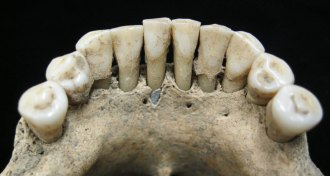 Anthropology
AnthropologyPaint specks in tooth tartar illuminate a medieval woman’s artistry
Tooth tartar unveils an expert female manuscript painter buried at a German monastery.
By Bruce Bower -
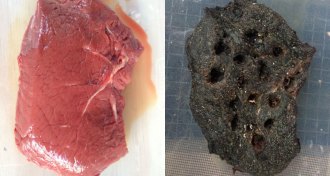 Anthropology
AnthropologyThis scientist watches meat rot to decipher the Neandertal diet
This scientist is studying how meat changes as it rots to figure out what Neandertals might have eaten.
-
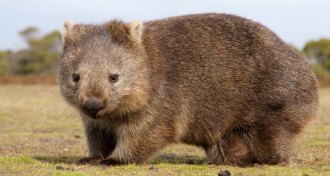 Astronomy
AstronomyThese are the most-read Science News stories of 2018
From male birth control to wombat poop, Science News online readers had a wide variety of favorite stories on our website.
-
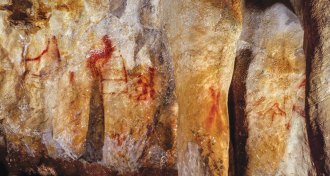 Anthropology
AnthropologyHuman smarts got a surprisingly early start
Human ingenuity began on treks across Asia and in fluctuating African habitats.
By Bruce Bower -
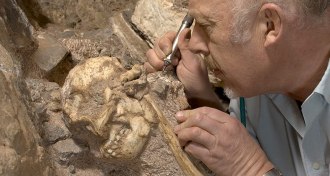 Humans
Humans‘Little Foot’ skeleton analysis reignites debate over the hominid’s species
Long-awaited analyses of the Little Foot skeleton have researchers disagreeing over resurrecting a defunct species name.
By Bruce Bower -
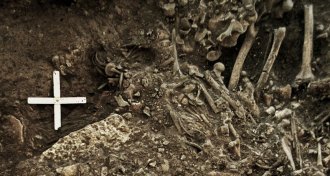 Genetics
GeneticsA 5,000-year-old mass grave harbors the oldest plague bacteria ever found
DNA from an ancient strain of the plague-causing bacterium could help uncover the origins of the deadly disease.
By Bruce Bower -
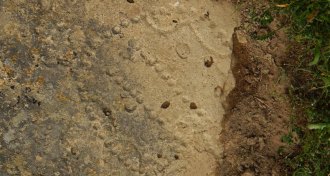 Archaeology
ArchaeologyA Bronze Age game called 58 holes was found chiseled into stone in Azerbaijan
A newly discovered rock pattern suggests that the game traveled fast from the Near East to Eurasia thousands of years ago.
By Bruce Bower